%20copia.png?width=667&name=MOMENTSTUDIO(198)%20copia.png)
After nearly two years of no in-person events, and having to look for new and creative ways to stay connected from a distance, we were finally able to implement a few activities and events with our MVP members in Africa at the end of 2021. We’re excited to share updates with you! So keep reading to find out more about what we’ve been up to in Africa!
________________________________________________
MVP Rwanda Event
This event had us particularly excited, not only for the reasons mentioned above, but because it was our first official MVP Africa event! With the theme, “Cultivating Connections” the event took place in Kigali, Rwanda, following all COVID protocols to ensure safety. In addition to a forum for peer-to-peer engagement across the 5 Africa MVP organizations and invited guests, the day’s speakers highlight the multi-dimensional partnerships possible through the Relationship Coffee Model and the MVP Program. Speakers included:
- Challenges Worldwide: an international NGO and strategic partner focused on building community through prosperity.
- One Acre Fund: a strategic partner with a strong track record for providing smallholder farmers with agricultural support, training, and materials.
- NAEB: the National Export Board of Rwanda, also a critical partner, who shared important insights about the Rwanda coffee sector.
The event included live presentations, as well as virtual ones from some of our team members in Portland, Oregon, USA, with focus areas such as quality control, agroforestry in coffee farming, advancing women’s careers in coffee, and cultivating the next generation of coffee farming.
%20copia.png?width=3600&name=MOMENTSTUDIO(34)%20copia.png)
Having our Africa producer partners together once again and being able to spend a few days with them, exchanging knowledge, listening to stories, and seeing the impact of our MVP program first hand, was a memorable experience for our team.
We hope to do more live events this year, to keep learning from our partners, and to keep looking for ways to positively impact the communities we work closely with in Africa. We are looking forward to continued future successes in the region with the incredible help of our Commercial and Logistics Manager there, Eric Rukwaya, who played a key role in the success of the event, and who you can read more about in our Meet the SH team: Supply Directors and Managers blog post!
Shade Trees Distribution
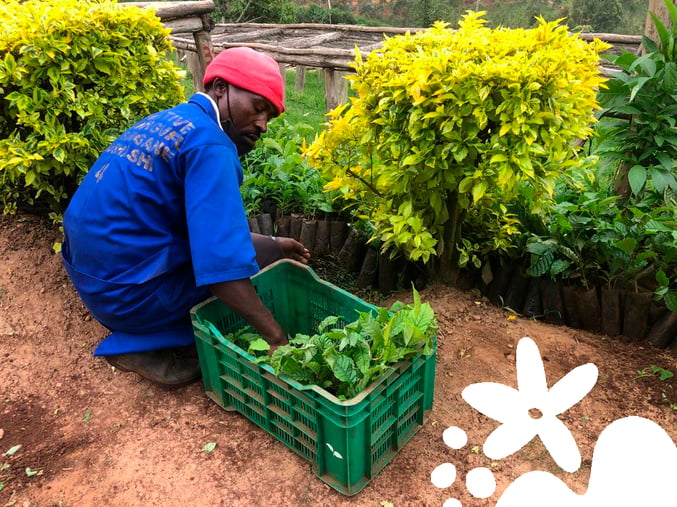
In collaboration with the One Acre Fund (OAF), we also developed a partnership that resulted in the distribution of 109,895 shade trees, benefiting 5,953 farming families - including MVP members of the cooperatives we work with across Southern and Western Rwanda.
Due to Rwanda’s geographical location, climate change has been felt dramatically in the country. So, during the distribution of the trees, farmers were provided with training on the importance of agroforestry as an agricultural practice, especially in the face of climate change and how and when to plant the seedlings.
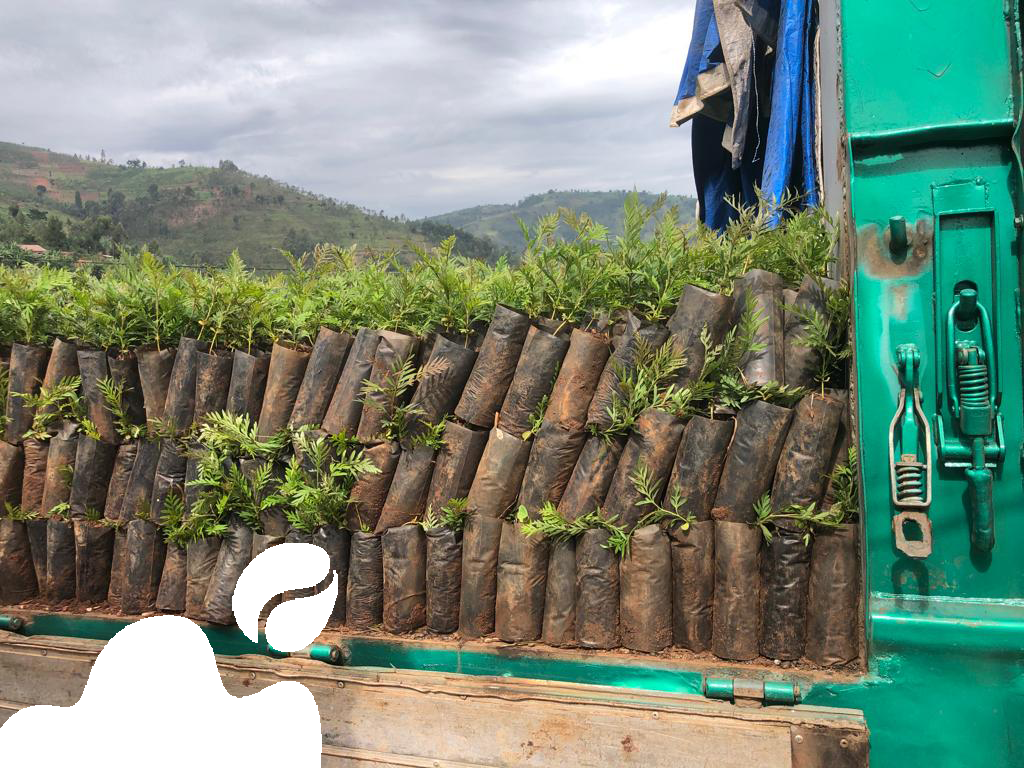
The information shared with the coops during the training was reinforced during our MVP event by Pierre Nshimyumuremyi, a member of OAF’s tree team. Pierre delivered an excellent presentation on how to get the most out of the trees that had been distributed.
In addition to the trees providing shade to coffee plantations, one of the goals we hope to achieve with this initiative is the diversification of income opportunities that these trees offer to the farmers; having different streams of capital during low seasons, or seasons that the climate has negatively impacted, offers another option of security to them.
Sholi Coffee Cooperative Receives Goats For Organic Coffee Farmers
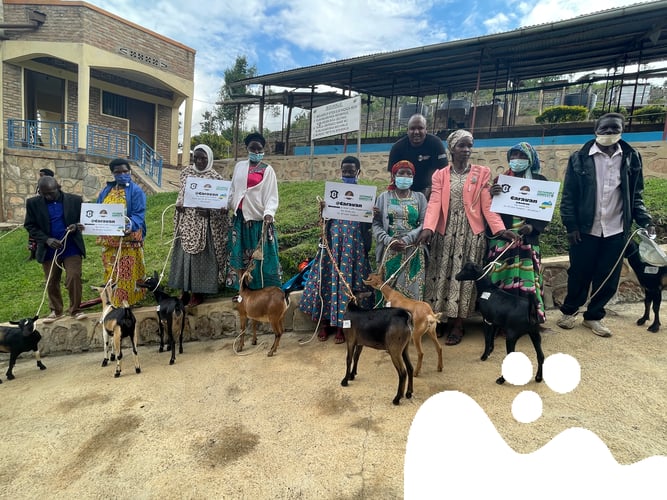
The Sholi Coffee Cooperative, located in the Muhanga District in the Southern Province, is one of our MVP partners in Rwanda, and one that exemplifies teamwork - even their name means something close to that! In the Kinyarwanda language, its full name is “Abateraninkunga ba Sholi Cooperative.” “Abateraninkunga” translates to “mutual assistance” and represents the co-op’s farmers’ commitment to working together. They truly are constantly looking for ways to motivate their 538 members – 226 of which are women – to keep improving the quality of their coffee.
As a pioneer in social-economic development in the region’s coffee community, Sholi has built a health center and community nutrition center that provides people with medicine and treatment for minor injuries. The center also advocates for, and offers support to, children with malnutrition in the community.
Throughout the time we’ve been working with them, we’ve supported them on various projects. We provided women farmers at Sholi - at the communal field called “Kundwa,” which translates to “be loved” - with training; and once they earned their Organic certification, we brought to market their natural-processed micro-lots to the large specialty coffee community.
But what does all this have to do with goats? Well, keep reading!
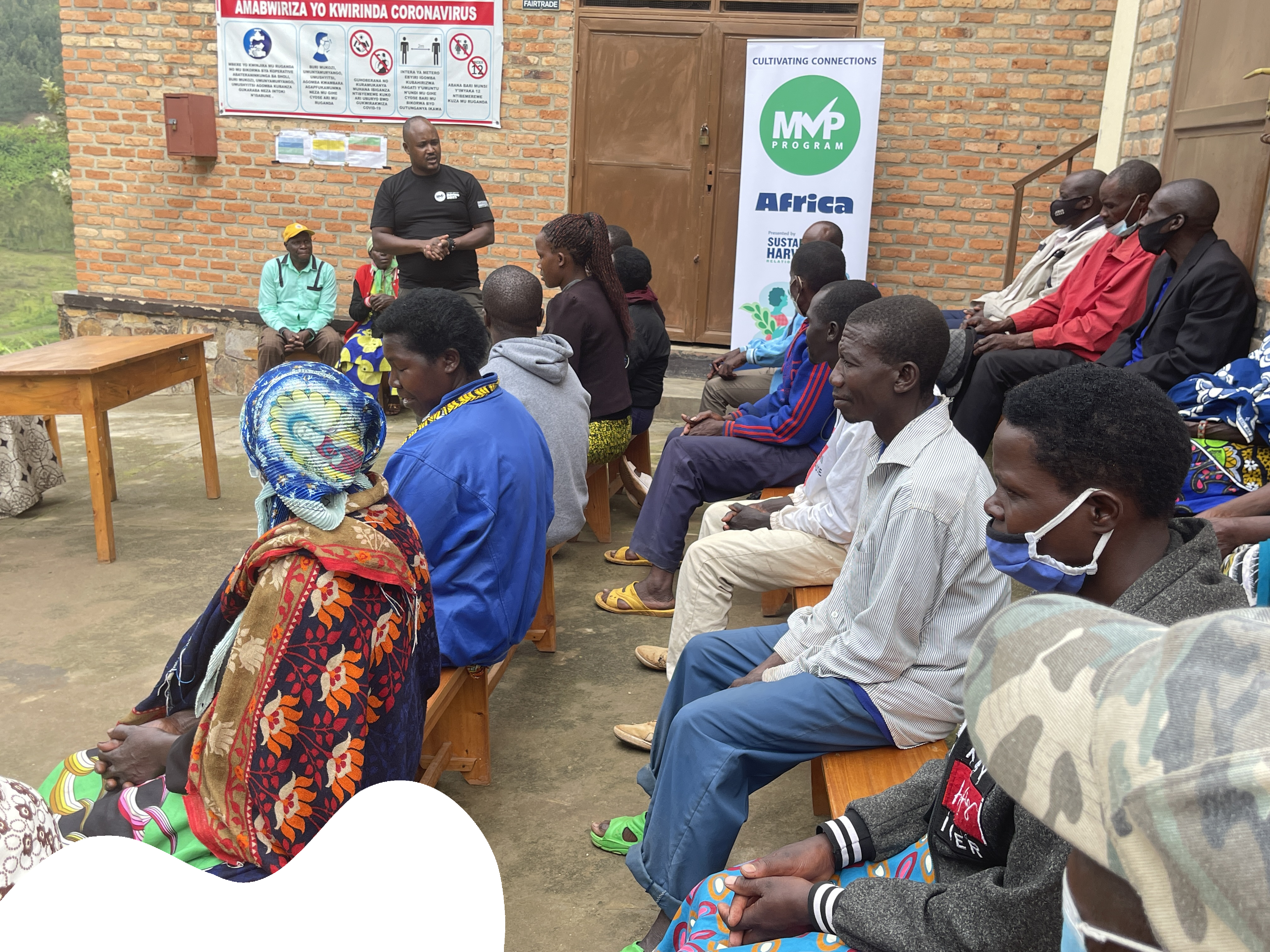
Sholi farmers work hard to improve their quality and social impact, which truly shows in their product! Seven lots that scored 86+ produced by 40 women farmers, were purchased by Caravan Coffee Roasters in the U.K. and were awarded a quality premium of ~ USD $7.50/kg.
What made these coffee microlots so unique?? Sholi applied the following criteria to select the coffees:
- Women-run Farms: The farms producing the coffees had to be well-maintained, primarily by women following best agricultural practices, including mulching, pruning, exclusive use of organic compost, integrated pest management system, and shade grown practices.
- Ripeness Target: Trained in hand-selected harvesting, the women had to meet a ripeness target of 95% to 98% with their harvested cherries after the cherries had undergone manual sorting, floating, and size sorting.
- Cupping results: The initial cupping target was 87+, and after internal cupping and quality control of each day’s lots, only coffees meeting those standards were selected to pass through to the next stage, from which pre-shipment samples were sent to Sustainable Harvest and Caravan Coffee Roasters for approval.
In addition to the money received for their coffees, the women farmers earned points for producing high-quality coffee through our PSR (Premium Sharing Rewards) program, which they exchanged for a goat. But again, why goats? Well, Jeanne d’Arc Mugorewishyaka, one of the women farmers, explained why! “In a farming community like ours, a goat is a multi-use animal,” she said. “It is raised for its meat, its milk to fight malnutrition, as well as for leather selling and compost fertilizers for coffee farmers and other crops. Livestock is an integral part of agriculture. Goat farming is a major contribution in providing fertilizers to crop production, mostly for organic farming like our coffee”.
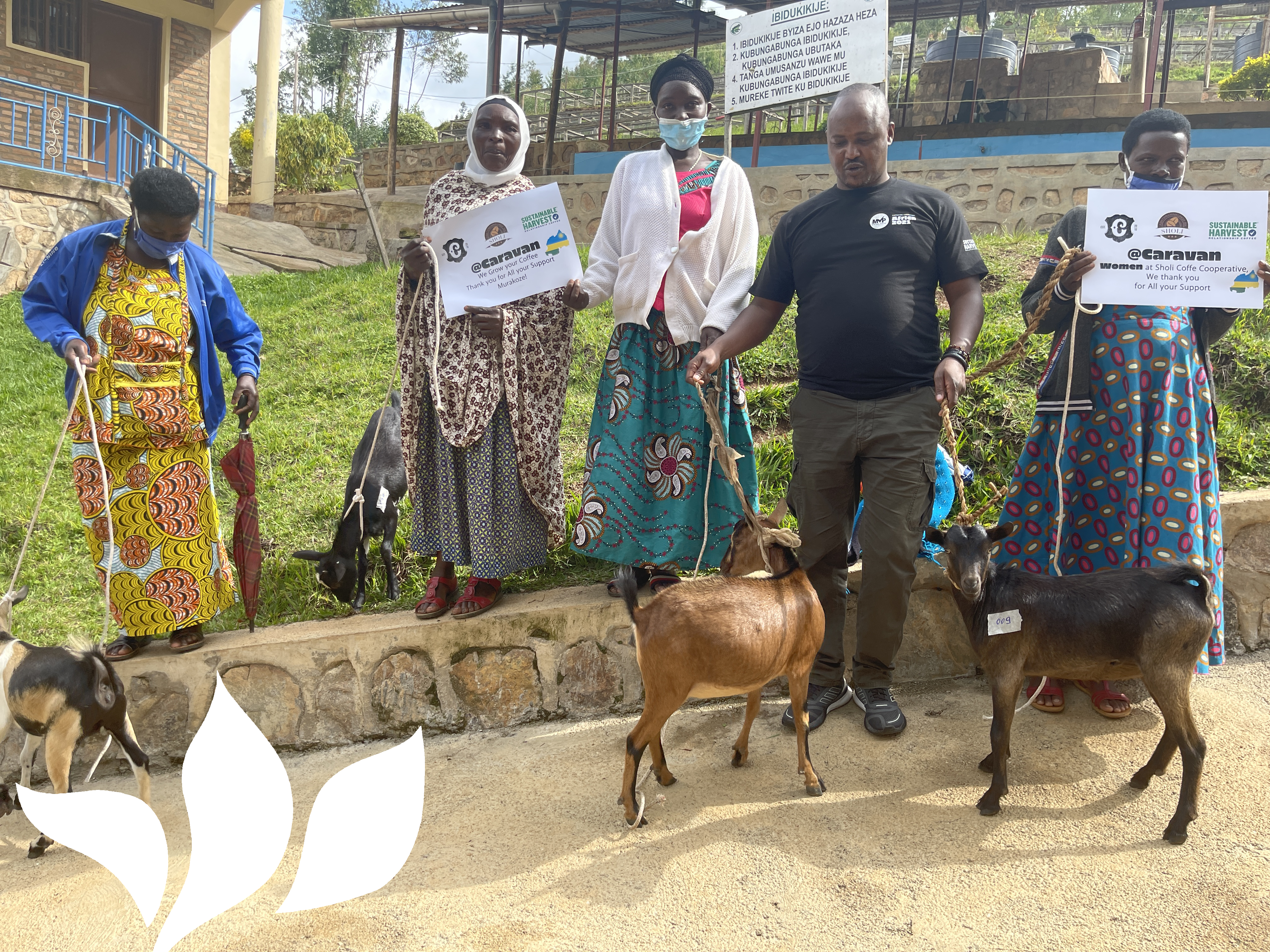
Ms. Mugorewishyaka adds that goat farming requires low investment and can turn into a sustainable business. “There are fewer requirements of feed compared to rearing other livestock,” she says. “It’s easy to sell goats in case the need arises for the farmer. And after five months of mating, kids are produced, and income can be generated from selling after rearing eight to 10 months.”
The goats were distributed in an event we organized with support from Caravan, which took place at the end of November, where farmers were able to select their goats.
________________________________________________
We are incredibly happy with the results of these events in Rwanda. We hope to keep conducting many more in this fantastic producing country in the near future, and in other producing countries where we have a presence!



.png)
